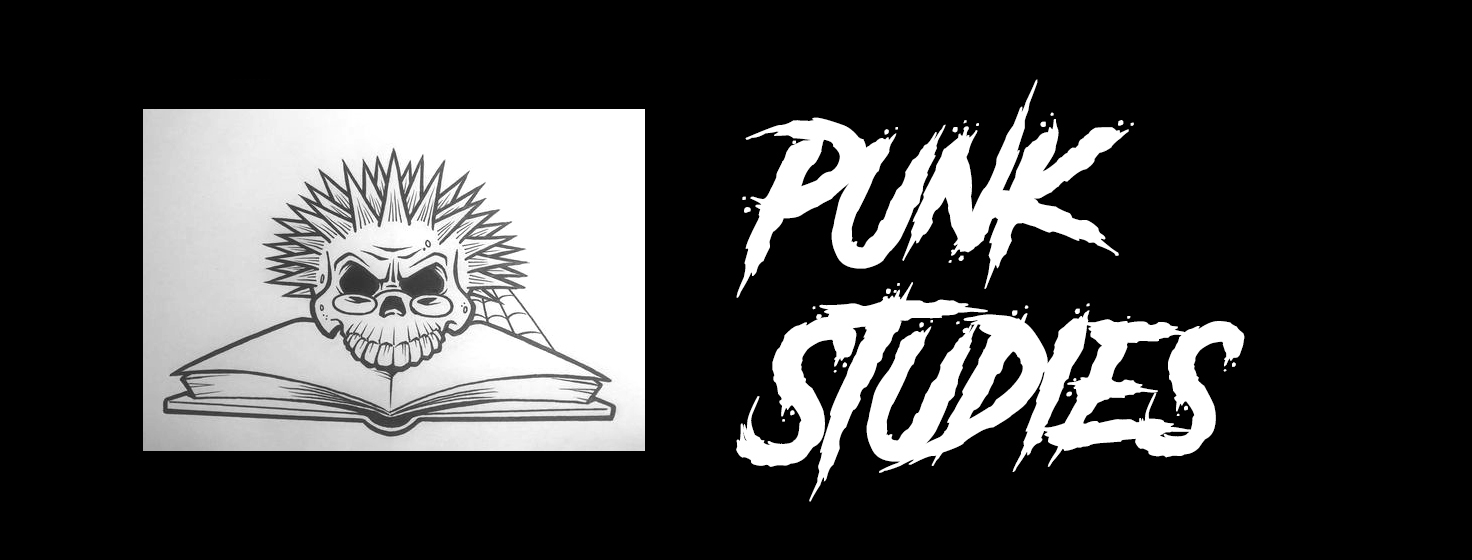This music video is by Groningen, the Netherlands punk band De Fuckups. Its members became active in punk much earlier than 2018, that is why they were interviewed for this thesis:
PUNK IN ROTTERDAM EN GRONINGEN TIJDENS DE JAREN ZEVENTIG EN TACHTIG VAN DETWINTIGSTE EEUW. By Ondřej Grošaft. OLOMOUC 2019.
This thesis from the Czech Republic is about punk in the Netherlands in the 1970s and 1980s. Especially in Groningen and Rotterdam cities, focusing on, respectively, the bands the Fuckups (founded in 2003, but including people who had been in earlier bands) and the Rondos, founded in 1978.
Ondřej Grošaft deserves praise for the effort he put into writing the thesis. He went especially to the Netherlands to interview 1970-80s Dutch punk participants. He studied much Dutch literature (not including Punk Met Een Hoofdletter R. De Politieke Ideologie Van Rotterdams Punkcollectief De Rondos 1978-1983, MA thesis by Anne de Rooij). The points of criticism in my review are not meant at all to detract from the merits.
According to this thesis, punk in the Netherlands arose from the squatting movement; and ‘punks lived mostly in squats’. That is truer in Amsterdam than in other cities like Leiden in 1977-1982.
Ondřej Grošaft puts punk in the three cities Amsterdam, Rotterdam and Groningen in a political history perspective, on p. 7:
‘In the Netherlands, Punk in Amsterdam was a bit more linked to [anarchist] Provo. Punk in cities like Rotterdam and Groningen had another origin. Rotterdam and Groningen were radical workers’ movement centres. Communists like the pro-Moscow Communistische Partij van Nederland (CPN) and various smaller Maoist parties had a big influence in these cities.’
In fact, Amsterdam before and during the 1970s and 1980s was more of a radical workers’ movement centre than the two other cities. In both Rotterdam and Groningen, the centre-left social democrat Partij van de Arbeid (PvdA) was much bigger than the CPN, getting in Rotterdam ten times or more votes in elections. While Maoists in Rotterdam were in turn much less numerous than the CPN and nearly non-existent in Groningen. While in Amsterdam, where their headquarters was, the CPN was much bigger than in Rotterdam, and often got over half of the number of PvdA votes in elections.
Was the CPN ‘pro-Moscow’? Yes, until the conflict between the Chinese and Soviet communist party leaders in the early 1960s. Then, the CPN took a non-aligned position in that conflict; e.g., condemning the 1968 invasion of Czechoslovakia by Warsaw Pact armed forces.
To my surprise, it is always good to learn new things, Ondřej Grošaft mentions on p. 10, that there were Maoist ideas among some Czechoslovak opponents of the post-1968 Warsaw Pact invasion regime. Surprising, as the main reproach by the Chinese party leaders against their Soviet colleagues was Soviet destalinisation. While one might expect rather views in Czechoslovakia that Khrushchev’s destalinisation had not gone far enough. The Chinese party leaders had supported the 1956 Soviet military invasion of Hungary.
Were the Rondos the earliest Rotterdam punk band, when they started in 1978, as p. 7 of the thesis says?
No, there were earlier punk bands in Rotterdam. The Game, Vissenpunk and Banana Sisters since 1977.
Imho, the thesis would have benefited by including not also the viewpoints of the interviewed Rondos, but also of non-Rondos, often anarchist, punks, in Rotterdam and elsewhere.
When Ondřej Grošaft interviewed the Rondos, they said about the class background of punk: ‘Here in the Nederlands, you don’t have such an extreme class difference as in England. […] It [class] did not play a role.’ It did play a role, eg, in the scene around Leiden punk zine Pin, started in 1978; where people doubted if one could be a real punk if one was not working-class.
Finally, a remark about skinheads. P. 22 of the thesis says: ‘They had an extreme right orientation’. This is much too simplistic. Skinhead subculture originated not with white supremacists, but with Jamaicans. There have always been non-racist skinheads in the UK, the Netherlands, Germany and elsewhere, who consider nazi skins to be not real skinheads, but ‘boneheads’.
It will be interesting to compare the Rotterdam side of this Czech thesis with the new 784-page book by ex-Rondos singer Johannes van der Weert which will be published soon.

Recent Comments